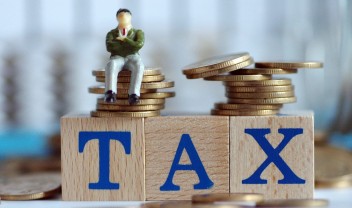News / Monthly Tax Update - September 2024
Monthly Tax Update - September 2024
01STSEP 2024


Taxpayers can start lodging their tax returns
With millions of pieces of information now pre-filled (including information from most banks, employers, government agencies and private health insurers), the ATO is giving taxpayers with simple affairs the 'green light' to lodge their tax returns.
Taxpayers who plan to claim deductions this year should make sure they have the correct records, and, in most cases, "a bank or credit card statement (on its own) isn’t enough evidence to support a work-related deduction claim – you’ll need your receipts".
The ATO reminds taxpayers that the rules regarding how and when they can claim a deduction can change, including in relation to car expenses and working from home costs. Therefore, they should not just 'copy and paste' their deductions from last year, and they may require assistance from their accountant in this regard.
The ATO notes that taxpayers using a registered tax agent normally have more time to lodge.
Business self-review checklist: GST classification of products
GST classification errors can lead to significant under-reporting of GST for some taxpayers.
The ATO recently issued guidance for small to medium businesses on self-reviewing GST classification of food and health products.
The use of this guide is not mandatory, although the ATO encourages small to medium businesses to regularly self-review the GST classification of supplies, and adopt better practice processes and controls as listed in the accompanying checklist.
The checklist provides practical, step-by-step guidance for entities to:
- self-review the GST classification of their supplies (products they import, purchase as stock or produce for sale); and
- assess the robustness of their business systems, processes and controls that directly impact their GST classification systems.
Small business food retailers with turnover of $2 million or less may use one of the 'GST simplified accounting methods' to account for GST instead.
Receiving payments or assets from foreign trusts
Additional tax liabilities may arise when money or assets of a foreign trust are paid to a taxpayer or applied for their benefit, and they are a beneficiary of the foreign trust. These can include:
- loans to them by the trustee directly or indirectly through another entity;
- amounts paid by the trustee to a third party on their behalf;
- amounts that are described as gifts from family members, but are sourced from the trust; and
- distributions paid to them or trust assets (such as shares) transferred to them by the trustee.
Taxpayers who receive money from a foreign trust may need to ask further questions to determine whether the amount must be included in their assessable income, including:
- whether they are a beneficiary of the foreign trust;
- where the foreign trust obtained the money; and
- why the money was paid to them, e.g., is it a payment for services, a gift, a distribution or a loan.
Storing correct records for work-related expenses
Taxpayers need to consider what work-related expenses they will be looking to claim in the new financial year, and what records they will need to substantiate those deductions.
Records can be kept as a paper version, an electronic copy, or a 'true and clear' photo of an original record.
Working from home deductions
Taxpayers can use two different methods to calculate their working from home deductions, and they each have different requirements:
- With the fixed rate method, taxpayers will need a record of the actual number of hours they worked from home for the whole financial year, and at least one record for each of the additional running expenses they incurred that the rate includes (e.g., an electricity bill).
- To use the actual cost method, taxpayers must also keep records for any additional running expenses they incurred, and the depreciating assets they bought and used while working from home, and show how they apportioned work-related use for their expenses and depreciating assets.
Tax incentives for early stage investors
The ATO is reminding investors who purchased new shares in a qualifying 'early stage innovation company' ('ESIC') that they may be eligible for tax incentives.
These tax incentives provide eligible investors who purchase new shares in an ESIC with:
- a non-refundable carry forward tax offset equal to 20% of the amount paid for their eligible investments – this is capped at a maximum tax offset amount of $200,000 for the investor and their affiliates combined in each income year; and
- modified capital gains tax ('CGT') treatment, under which capital gains on qualifying shares that are continuously held for at least 12 months and less than 10 years may be disregarded – capital losses on shares held less than 10 years must be disregarded.
The maximum tax offset cap of $200,000 does not limit the shares that qualify for the modified CGT treatment.
Penalties imposed on taxpayer who falsely amended tax returns
The Administrative Appeals Tribunal ('AAT') recently affirmed the ATO's decision to impose shortfall penalties on a taxpayer who had lodged false amended income tax returns.
The taxpayer had lodged income tax returns for the 2020 and 2021 income years through her tax agent. The taxpayer subsequently lodged amended returns to claim deductions regarding a non-existent family trust for those years.
She did not consult her tax agent before doing so.
Following an audit, the ATO advised the taxpayer that she had no entitlement to the deductions claimed, and it imposed shortfall and administrative penalties.
The AAT concluded that the conduct of the taxpayer was reckless, and in lodging her amended tax returns without the knowledge of her tax agent, the taxpayer had not taken reasonable care. The AAT accordingly affirmed the ATO's decision to impose shortfall and administrative penalties on the taxpayer.
Other Articles
Monthly Tax Update - December 2024

1ST DEC 2024
This month’s edition of the monthly tax update includes information on Can staff celebrations attract FBT?, Reminder of December 2024 Quarter Superannuation Guarantee ('SG'), ATO's tips for small businesses to 'get it right', SMSFs cannot be used for Christmas presents! Taxpayer's claims for various 'home business' expenses rejected ATO reminder about family trust elections. Please contact us if you wish to discuss how the points raised in this month’s monthly tax update specifically affect you.
Monthly Tax Update - May 2025

5TH MAY 2025
This months edition of the monthly tax update includes information on How to manage business day-to-day transactions, Minimum pension drawdown reminder, How to avoid common CGT errors, Keeping not-for-profit records up to date, Increase to rate for working from home running expenses and Truck driver entitled to claim meal expenses. Please contact us if you wish to discuss how the points raised in this month’s monthly tax update specifically affect you.

